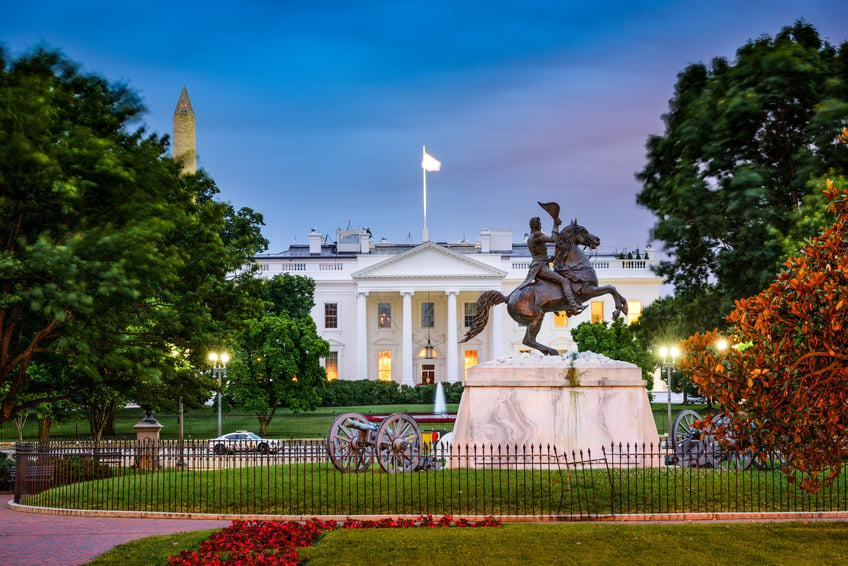Please join us for a weekly series, hosted by Baker McKenzie’s North America Government Enforcement partners Jeffrey Martino and Jerome Tomas.
This weekly briefing is available on demand and will cover hot topics and current enforcement actions related to white collar crime and criminal investigations in the US and abroad to arm you with the information you need for your business week.
This week’s discussion will cover the following:
• DOJ’s Scrutiny on Interlocking Directorates spurs Board resignations
• DOJ files its first criminal Section 2 attempted monopolization case in decades
The Investigating Authority of the Federal Economic Competition Commission published on 12 October 2022, a notice initiating an investigation, for alleged anticompetitive conduct of horizontal monopolistic practices (or cartel practices) in the market of public procurement procedures for the acquisition, leasing, maintenance services and managed services of information and communication technologies.
On 19 September 2022, the US Attorney for the District of Montana and the US Department of Justice, Antitrust Division filed a criminal information against and plea agreement with the president and owner of a paving and asphalt company to resolve a charge of attempted monopolization. The company owner pled guilty to engaging in anticompetitive conduct with the intent to gain monopoly power in the markets for highway crack sealing services in Montana and Wyoming by proposing to a competitor that they enter into a market-allocation agreement in which the two companies would stop competing against each other by dividing territories in Montana and Wyoming. The company owner also agreed to pay a fine of USD 27,000.
On 6 October 2022, the Health Sciences Authority issued an update on products found and reported by overseas regulators to contain potent ingredients that are prohibited and briefly explained the possible side effects of the potent ingredients. The update aims to increase awareness among the local population on the safety issues of such products overseas. To better protect local consumers from harmful products that can be found overseas and online, the HSA not only conducts local surveillance, but monitors overseas enforcement actions, and updates consumers on products that may pose a threat to public health.
Roughly one year after the federal election in September 2021, the German government’s plans to legalize cannabis for recreational use have further taken shape. German Minister of Health Karl Lauterbach has introduced a document on the key points of the planned legislative changes on Wednesday, 26 October 2022. According to this document, cultivation, distribution and taxation — as well as advertisement for recreational use — of cannabis will be specifically regulated.
The Hong Kong Securities and Futures Commission’s “Manager in Charge” regime, which aims to heighten senior management accountability within licensed corporations, came into effect in 2017. In a recent disciplinary action, the SFC has reprimanded and fined a licensed corporation HKD 1.75 million and banned its former MIC for Compliance for two months. The Subject LC is licensed under the Hong Kong Securities and Futures Ordinance to carry on Type 9 (Asset management) regulated activity.
On 24 October 2022, the National Securities Market Commission issued a communication regarding investment recommendations made by influencers on social media. If such influencers are recognized as ‘experts’ under EU standards, they will be contacted by the CNMV and be made to comply with applicable regulations established under the framework of Regulation (EU) 596/2014 on market abuse and its Delegated Regulation (EU) 2016/958.
The Dubai Financial Services Authority of the Dubai International Financial Centre had started its foray into regulating the crypto sector by introducing investment tokens in September 2021. The spotlight is now on the DFSA as it looks to make sweeping changes to its regulatory regime concerning recognized crypto tokens as of 1 November 2022.
On 19 October 2022, the US Department of Justice’s Antitrust Division announced that seven directors had resigned from their respective corporate board positions in response to concerns of interlocking directorates. This announcement followed reports that DOJ had issued letters to numerous public companies, investors, and individuals last month. The letters reportedly indicated that DOJ was examining potential interlocks and advised the targets of the risk of potential enforcement actions. DOJ’s muscular posture toward enforcement under Section 8 of the Clayton Act is only the “first in a broader review of potentially unlawful interlocking directorates.”
On 12 October 2022, the “Administration de l’enregistrement, des domaines et de la TVA” (AED) released on its website several documents regarding the AML/CFT supervision of Luxembourg alternative investment funds (AIFs) that are not supervised by the “Commission de surveillance du secteur financier”. The AED requires Unregulated AIFs to file the “RR/RC identification form” and file the “AIF AML/CFT Questionnaire 2021” for the financial year ending in 2021 by the close of business on 12 November 2022 at the latest.



